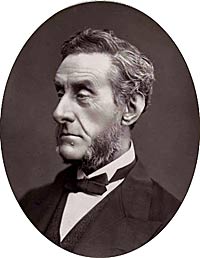Readings:
PRAYER (traditional language)
Let thy continual mercy, O Lord, kindle in thy Church the never-failing gift of love, that we, following the examples of thy servants William Wilberforce and Anthony Ashley-Cooper, may have grace to defend the poor and maintain the cause of those who have no helper; for the sake of him who didst give his life for us, thy Son, our Savior Jesus Christ, who liveth and reigneth with thee and the Holy Spirit, one God, now and for ever. Amen.
PRAYER (contemporary language)
Let your continual mercy, O Lord, kindle in your Church the never-failing gift of love, that we, following the examples of your servants William Wilberforce and Anthony Ashley-Cooper, may have grace to defend the poor and maintain the cause of those who have no helper; for the sake of him who gave his life for us, your Son, our Savior Jesus Christ, who lives and reigns with you and the Holy Spirit, one God, now and for ever. Amen.
This commemoration appears in A Great Cloud of Witnesses, where it is combined with that of William Wilberforce
Return to Lectionary Home Page
Webmaster: Charles Wohlers
Last updated: 31 May 2020
ANTHONY ASHLEY-COOPER, 7th EARL OF SHAFTESBURY
PROPHETIC WITNESS 1885
 Anthony Ashley Cooper, 7th Earl of Shaftesbury,
(28 April 1801 – 1 October 1885), was an English politician and
philanthropist, one of the best-known of the Victorian era, and one
of the main proponents of Christian Zionism.
Anthony Ashley Cooper, 7th Earl of Shaftesbury,
(28 April 1801 – 1 October 1885), was an English politician and
philanthropist, one of the best-known of the Victorian era, and one
of the main proponents of Christian Zionism.
Born in London, he was educated at Harrow School and Christ Church, Oxford. He became a Tory MP in 1826, and almost immediately became a leader of the movement for factory reform. He was largely responsible for the Factory Acts of 1847 and 1853, as well as the Coal Mines Act of 1842 and the Lunacy Act 1845. One of his chief interests was the welfare of children, and he was chairman of the Ragged Schools Union and a keen supporter of Florence Nightingale.
Shaftesbury was a proponent of the Restoration of the Jews to the Holy Land. Muhammad Ali’s conquest of Greater Syria (1831) changed the conditions under which European power politics operated in the Near East. As a consequence of that shift, Shaftesbury was able to help persuade Foreign Minister Palmerston to send a British consul to Jerusalem in 1838. A committed Christian and a loyal Englishman, Shaftesbury argued for a Jewish return because of what he saw as the political and economic advantages to England and because he believed that it was God's will.
In 1839 Shaftesbury published an article under the title «The State and the rebirth of the Jews». In it he urged the Jews to return to Palestine in order, according to him, to seize the lands of Galilee and Judea. Shaftesbury first put forward the slogan «Earth without people - people without land» and agitated in this direction. His call drew a positive response from various politicians, journalists and Christian religious leaders, both in Britain and America.
The lead-up to the Crimean War (1854), like the military expansionism of Muhammad Ali two decades earlier, signaled an opening for realignments in the Near East. In July 1853, Shaftesbury wrote to Prime Minister Aberdeen that Greater Syria was “a country without a nation” in need of “a nation without a country... Is there such a thing? To be sure there is, the ancient and rightful lords of the soil, the Jews!"
In his diary that year he wrote “these vast and fertile regions will soon be without a ruler, without a known and acknowledged power to claim dominion. The territory must be assigned to some one or other... There is a country without a nation; and God now in his wisdom and mercy, directs us to a nation without a country."This is commonly cited as an early use of the phrase, "A land without a people for a people without a land".